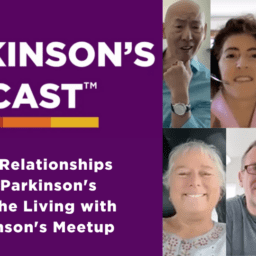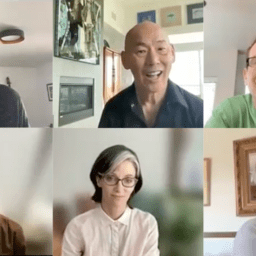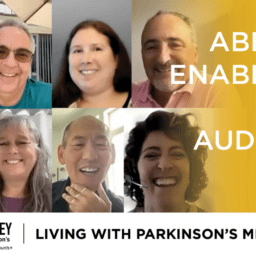Racial differences in Parkinson’s treatment and mortality exist. When it comes to addressing these disparities, the concept of trust comes up in nearly every conversation. But what do we really mean when we talk about trust? In this conversation, Dr. Altaf Saadi and Dr. Consuelo H. Wilkins examine the concept of trust, what we mean when we talk about trust, and how trust is necessary to address health disparities.
In this episode, our panelists discuss:
- What do we mean when we talk about trust?
- How can trust be built?
- What causes trust to break down?
- How can we measure trust?
- How can communities use existing, trusted relationships to address health disparities?
- How can health care providers and health care institutions be more trustworthy?
To download the transcript, click here.
Note: This is not a flawless word-for-word transcript, but it’s close.
Show Notes
- Trust is a complex term because it can exist in a variety of circumstances. Dr. Consuelo defines trust as a reliable belief or, more specifically, a reliability, validity, or the competence of something or someone
- For people who are marginalized, minoritized, and/or have been abused or exploited in the past, distrust of medical care may be a natural defense mechanism based on past experiences, not based on credentials or experience
- Try not to judge people for their mistrust, but rather, have the humility to think, “I can imagine why this person might not trust this information or find it reliable”
- Within the medical profession in particular, trust can be built on an individual level as well as on an organizational level
- To build trust on an individual level, it is important to validate a person’s feelings and experiences as their truth; to believe that they are as important as you are; to understand and exhibit effective communication among different kinds of people; and to show empathy without invalidating the person in the process by relating the experience to yourself
- To build more trust on an organizational level, new policies need to be enacted. Some examples of policy change that may increase patient trust might be increasing appointment lengths, creating new billing codes to support longer appointment times, and including topics such as effective communication across cultures into the educational curriculum for medical professionals
- It is important to understand that a person who has a general mistrust of medical care may develop trust with an individual professional. This, however, does not automatically transfer to all medical professionals
- For communities that are mistrusting of medical care in general, an effective way to get them proper medical information and care may be to give the appropriate materials to a trusted individual within the community, who can then distribute the information
additional resources
How to Communicate More Effectively With Your Doctor
Toolkit for Providers Serving Immigrant Communities
Health Disparities and Parkinson’s: Understanding the Issue
Health Disparities and Parkinson’s: Bridging the Gap Between Urban and Rural
meet the panelists
Altaf Saadi, MD, MSc
General Academic Neurologist and Associate Director of Asylum Clinic at Massachusetts General (MGH) and instructor of neurology at Harvard Medical School. She is also associate director of the MGH Asylum Clinic.d
Consuelo H. Wilkins, MD, MSCI
Vice President for Health Equity, VUMC
Associate Dean for Health Equity, Vanderbilt SOM
Engagement Core Director, All of Us Research Program
Associate Director, Vanderbilt Institute for Clinical and Translational Science
Professor of Medicine, Division of Geriatric Medicine
Geriatric Medicine Fellowship Program Faculty
Presented in partnership with:

Thanks for Listening!
To share your thoughts:
- Leave a note in the comment section below.
- Ask a question by emailing us here.
- Share this show on Facebook.
To help out the show:
- Leave an honest review on iTunes. Your ratings and reviews really help, and we read each one.
- Subscribe on iTunes.
Listen & Subscribe
Apple Podcasts | Stitcher
*The Third Season of the Parkinson’s Podcast is made possible through generous support in honor of Dr. Margaret Hilgartner.
[/vc_column_text][/vc_column][/vc_row]

















